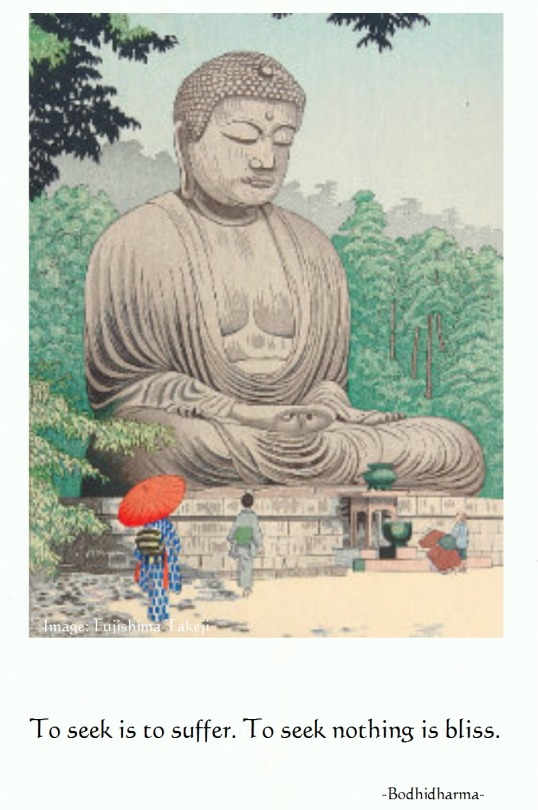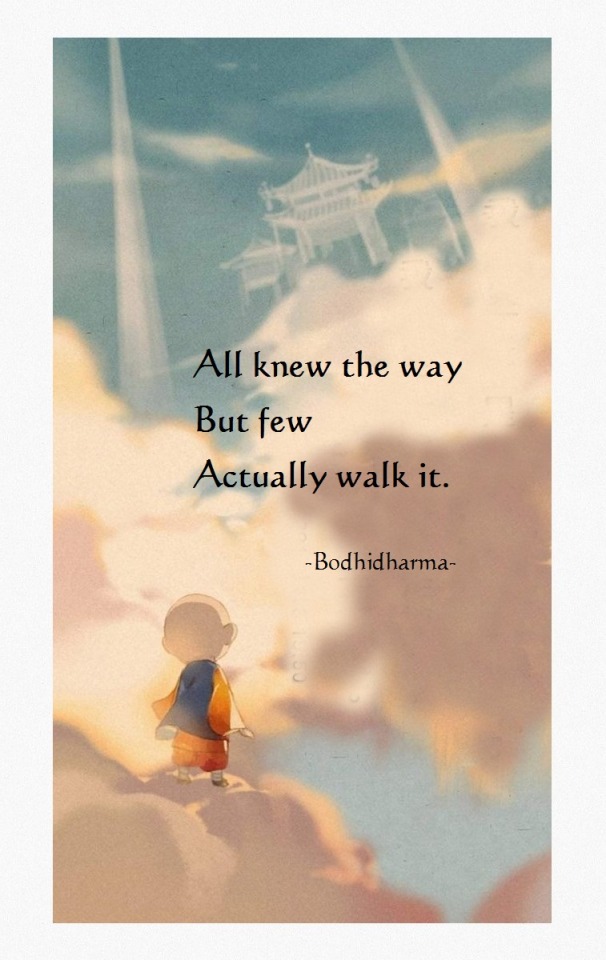#Bodhidharma
Text
“No merit. When you expect something in return, any action becomes a hardship. Zen rejects merit.” - Zen teachings
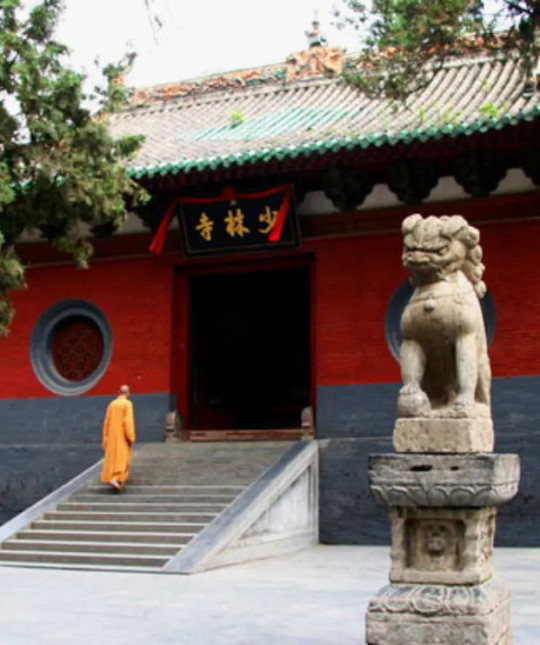
Bodhidharma (5th-6th century: date of birth and death unknown) was a Buddhist monk who, though born the third prince of the king of India, went to China and was the first to introduce Zen.
Legend has it that Master Bodhidharma's limbs rotted away after nine years of zazen (sitting zen meditation) against a wall. It is a myth. Zazen is not about sitting all the time. Monks walk in certain areas to prevent drowsiness and for exercise, known as kinhin (meditation performed while walking). So they can never lose their limbs.
When Bodhidharma first arrived in China, he met Emperor Wu of Liang (464-549). Emperor Wu asked him, “Since thee entered the service, thee have built many temples, copied sutra scrolls and ordained monks and nuns, what merit do these deeds have?” To which he replied, “No merit (There is no such thing as merit).” The Wu Emperor hurriedly asked another question, “Then what is the Supreme First Truth?” “Open, empty and unremarkable,” said Bodhidharma. “Then I ask thee, who is against thee?” “No idea,” Bodhidharma replied, gave up on the Wu Emperor and left, entering the Shaolin Monastery in the Northern Wei Kingdom. He then spent nine years in zazen (sitting zen meditation) at the Shaolin temple.
By the way, why did Bodhidharma say those his deeds had great merit were 'no merit'? Simply put, because Zen abhors merit.
Bodhidharma is saying “You should enjoy the act of doing whatever you do. Why are you thinking so foolishly? Don't worry about merit, just enjoy your work.”
In any case, acts done with a sense of merit are impure. For example, even when being kind to others, do it while enjoying the act of kindness and appreciating the other person. It is not the person who is being kind that should be grateful, but the person who has done the kindness.
Disappointed by Emperor Wu of Liang, who did not understand this, Bodhidharma entered the Shaolin Temple, where he spent nine years in zazen against the wall.
163 notes
·
View notes
Photo

Kanō Hōgai (1828-1888) — Daruma (Bodhidharma) [ink, hanging scroll, ca. 1880]
109 notes
·
View notes
Text
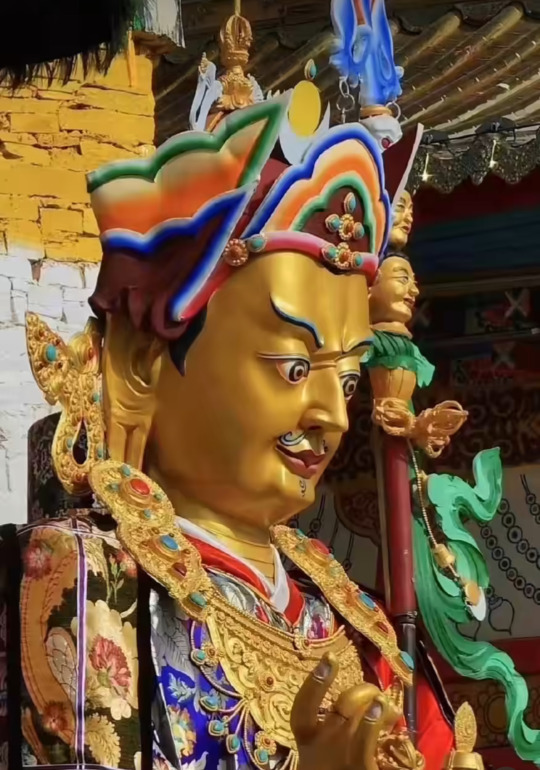
Free from the impulse to avoid, cultivate or cling. all concepts of samsara and nirvana totally vanish into the expanse of nondual wakefulness, and you remain nakedly as nondual unity, the essence of great bliss. At that time, even if the Dharmaraja, the Lord of Death, puts his hook into you and takes you away, you will not feel fear or dread.
-Padmasambhava
#Padmasambhava#Guru Rinpoche#four noble truths#buddha#buddhist#buddhism#dharma#sangha#mahayana#zen#milarepa#tibetan buddhism#thich nhat hanh#amitaba buddha#buddha samantabhadra#bodhidharma#rainbow body#Bodhisattva#manjushri#enlightenment spiritualawakening reincarnation tibetan siddhi yoga naga buddha#vajrasattva#vajrapani#vipassana
12 notes
·
View notes
Text
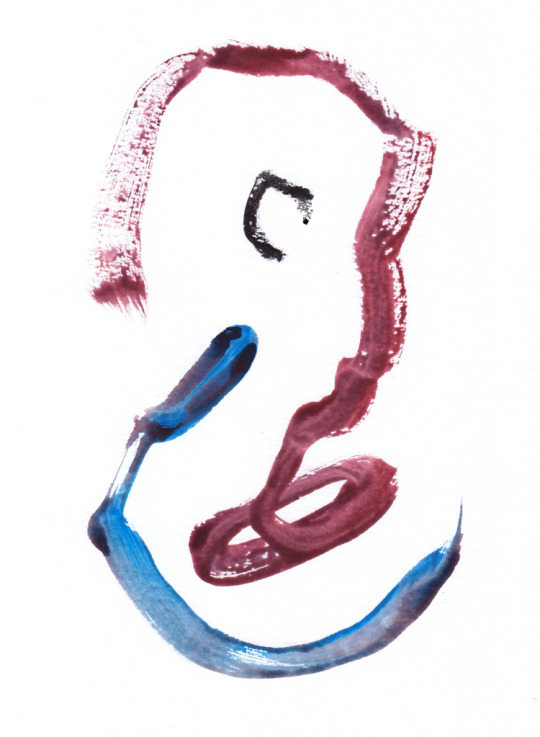
— Question : " Comment le Buddha sauve-t-il les êtres ? "
— Réponse : " Lorsque les images dans un miroir sauveront les êtres, le Buddha sauvera les êtres. "
/ Le Traité de Bodhidhama
25 notes
·
View notes
Text
Not thinking about anything is Zen.
Bodhidharma
6 notes
·
View notes
Text
The mind is the root from which all things grow. If you can understand the mind, everything else is included.
- Bodhidharma
22 notes
·
View notes
Photo
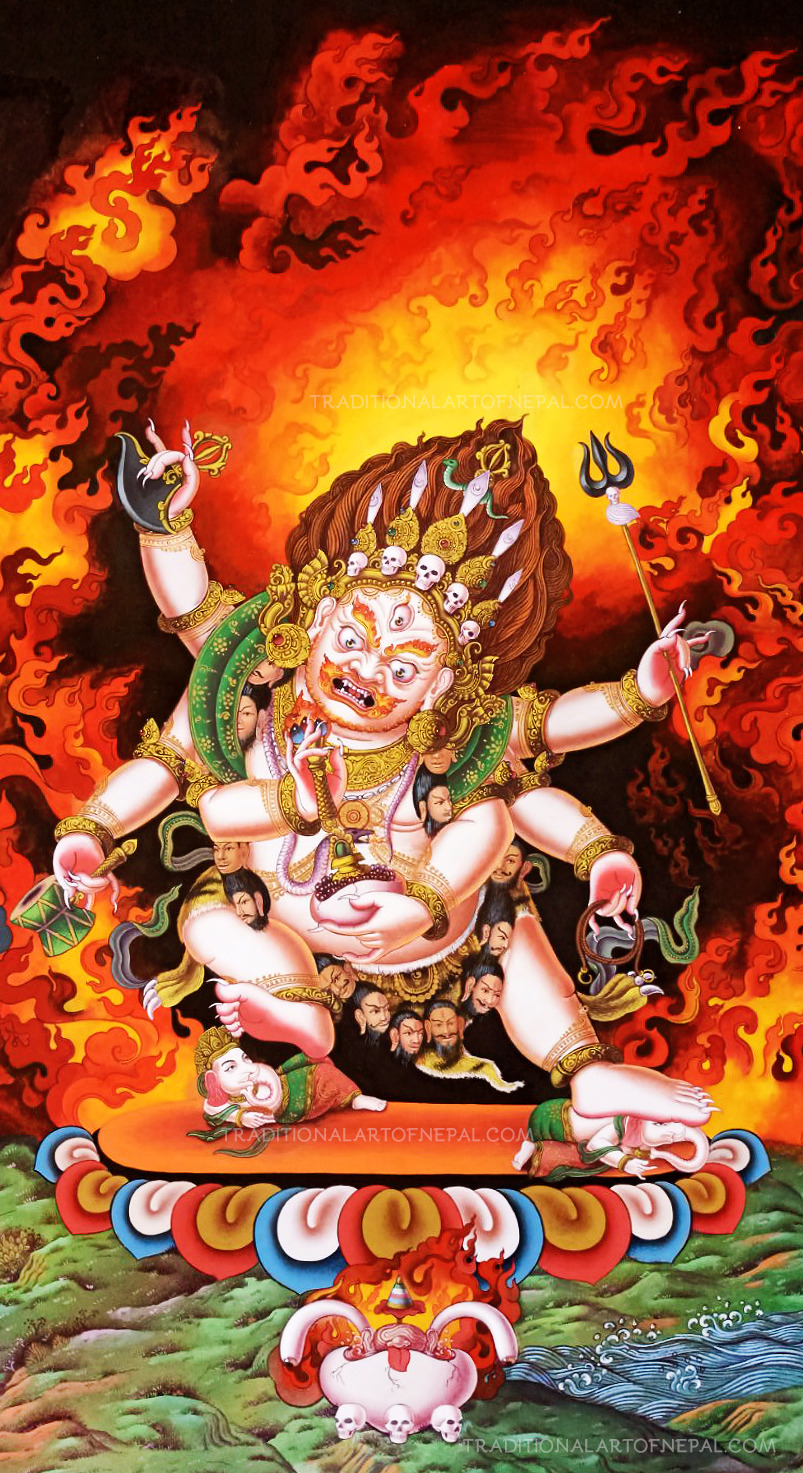
There's no advantage in deceiving yourself. Good and bad are distinct. Cause and effect are clear. But fools don't believe and fall straight into a hell of endless darkness without even knowing it.
~ Bodhidharma
56 notes
·
View notes
Photo
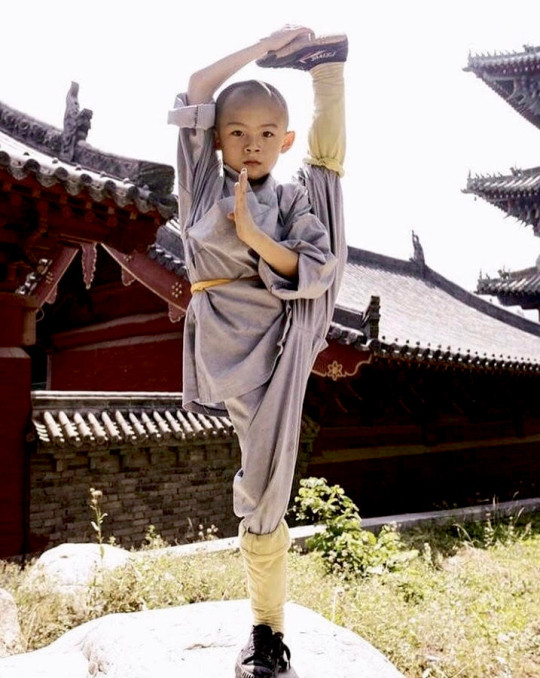
[Above photo: Shaolin Temple boy / The Shaolin Monastery is said to be the place where Zen was introduced to China by Bodhidharma, a semi-legendary Buddhist monk, who came to China from India (5-6th CE).]
- A message from 23 nights temple -
“If you buy what you want, there's never enough money. But there's money to be left over if you buy what you need.”
-二十三夜堂からのメッセージ-
”欲しいものを買っていれば、いくら金があっても足りない。要るものを買っていれば、少しの金でも余裕ができる。”
226 notes
·
View notes
Photo
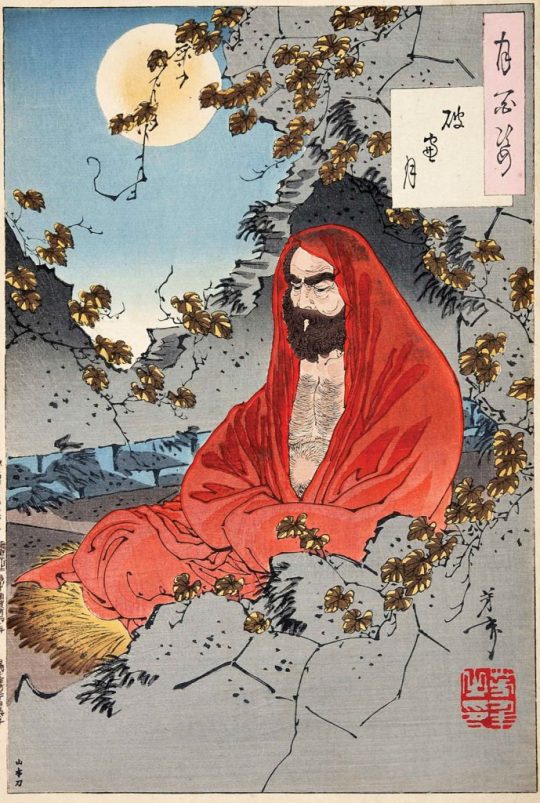
Bodhidharma, the first patriarch of Chan (Zen) Buddhism | Artwork by Yoshitoshi / courtesy Wikipedia
[Tricycle: The Buddhist Review]
* * * *
"Loneliness is the feeling that one is not complete alone. What if it turns out nothing is missing at all? What if nothing changes when another person is near?"
— Sallie Jiko Tisdale
#Tricycle#The Buddhist Review#Sallie Jiko Tisdale#quotes#buddhist#Bodhidharma#zen#practice#lonliness
29 notes
·
View notes
Quote
Not engaging in ignorance is wisdom.
Bodhidharma
#Bodhidharma#thepersonalwords#motivation#quotes#poetry#literature#relationship quotes#writing#words#love#relationship#thoughts#lit#spilled ink#inspiring quotes#life quotes#quoteoftheday#love quotes#poem#aesthetic
53 notes
·
View notes
Photo

the Lord is the True Self
#art#collage#bodhidharma#black and white#monochrome#ink#zen#retrofuture#design#aesthetic#teef#urban#architecture
76 notes
·
View notes
Text
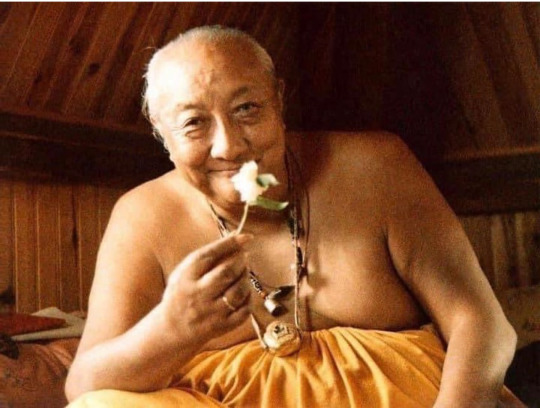
STAY FREE IN UNSHAKEN SERENITY
"Maintain that state of simplicity. If you encounter happiness, success, prosperity, or other favorable conditions, consider them as dreams or illusions, and do not get attached to any of them.
If you are stricken by illness, calamity, deprivation, or other physical and mental trials, do not let yourself get discouraged, but rekindle your compassion and generate the wish that through your suffering all beings suffering may be exhausted.
Whatever circumstances arise, do not plunge into either elation or misery, but stay free and comfortable, in unshaken serenity."
~ H.H. Dilgo Khyentse Rinpoche
#Dilgo Khyentse Rinpoche#buddha#buddhist#buddhism#dharma#sangha#mahayana#zen#milarepa#tibetan buddhism#thich nhat hanh#Padmasambhava#Guru Rinpoche#four noble truths#amitaba buddha#dzambala#dali lama#dzogchen#dhamma#buddha samantabhadra#bodhidharma#rainbow body#Bodhisattva#manjushri#vajrasattva#vipassana#vajrapani#vajrayana
11 notes
·
View notes
Photo

A portrait of the monk Bodhidharma (達磨 “Daruma”), semi-legendary founder of Zen Buddhism, at the entrance to the storehouse of Tenryūji Temple (天龍寺) in Kyoto, painted by the temple’s abbot Hirata Seikō (平田精耕) (1924-2008)
#buddhist temple#京都#kyoto#天龍寺#tenryuji#臨済宗#rinzai#zen buddhism#japanese art#buddhist art#平田精耕#hirata seiko#達磨#daruma#達磨大師#daruma daishi#bodhidharma
37 notes
·
View notes
Text
When you don't understand, you depend on reality. When you do understand, reality depends on you.
Bodhidharma
9 notes
·
View notes
